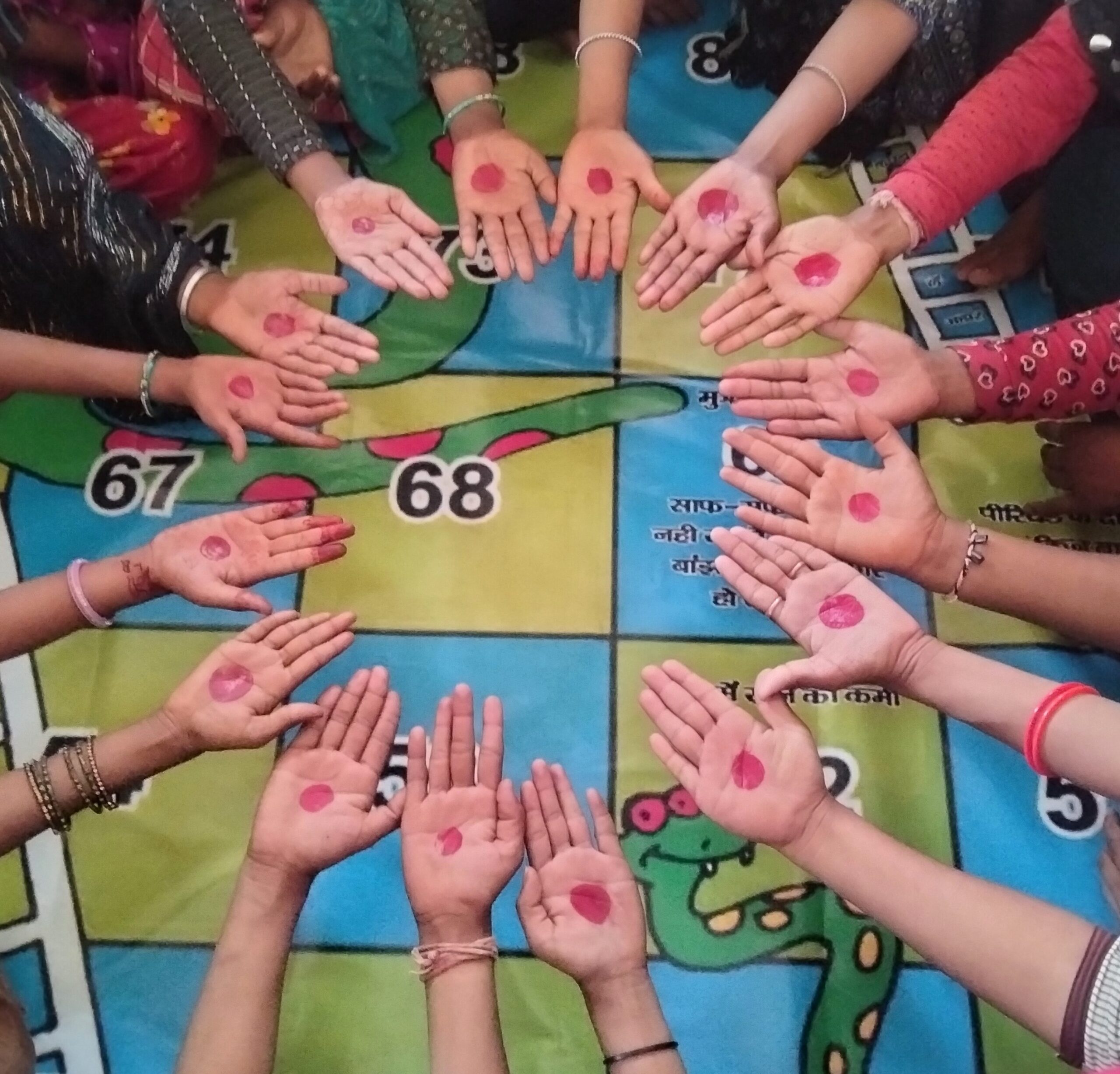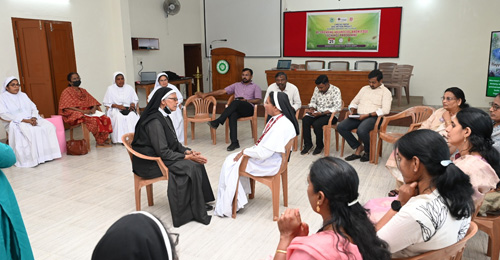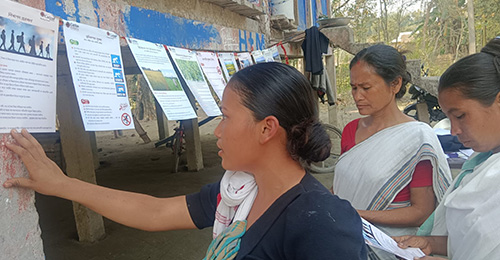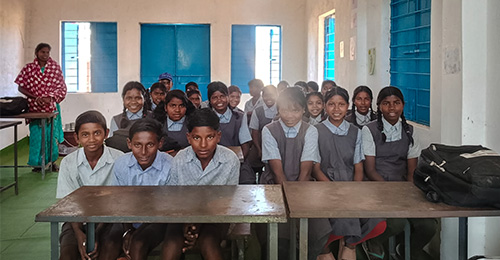Menstrual Health Management Day: Khushaal Bachpan’s Message Resonates with Women of Alirajpur

Menstrual Hygiene Management (MHM) encapsulates various facets of menstrual hygiene for women and adolescent girls. It includes practices, and services, that are essential to ensure safety as well as dignity and privacy of mensurating women. MHM addresses the societal beliefs and taboos surrounding the topic by providing knowledge, guidance, and support to girls and women in preparation for and during the mensuration cycle.
Menstrual Hygiene Day, observed annually on May 28th, serves as a significant opportunity to highlight the importance of hygiene practices during menstruation. It acknowledges the human rights and dignity of women, reinforcing our commitment to their health and wellbeing. Caritas India’s Khushaal Bachpan program is dedicated to empowering women and adolescent girls with knowledge and practices that promote their health and well-being. One crucial aspect of this mission is ensuring proper menstrual hygiene. The program has been working to impart accurate information to women and adolescent girls on menstrual health in different locations.
The primary goal of Menstrual Hygiene Day is to promote cleanliness during menstruation and dispel myths surrounding it among women and adolescent girls. By raising awareness and providing accurate information, we aim to encourage better hygiene practices and foster an environment where menstruation is discussed openly with no stigma.
To take this objective forward, in the village of Choti Khattali, Alirajpur District, Madhya Pradesh, the Khushaal Bachpan Team organised an engaging and informative event for women and adolescent girls to celebrate Menstrual Hygiene Day. The villagers were known to severely lag on crucial knowledge regarding mensuration and menstrual hygiene and adhere to beliefs and ideas determent to the health of the women in the community. Noting this fact the program team has been working on awareness regarding menstrual health in Alirajpur since November 2023.
On Menstual Hygiene Day, Khushal Bachpan’s dedicated MHM volunteers gathered everyone at the village panchayat building to participate in a series of activities designed to educate and empower. The event saw the participation of 26 girls, 7 young women, and 3 dedicated volunteers started with a recap session where they revisited the key lessons from previous training sessions conducted by Khushaal Bachpan volunteers. The topics covered included understanding the menstrual cycle, the importance of hygiene, and breaking the stigma surrounding menstruation.
Following the recap session, detailed information about Menstrual Hygiene Day, highlighting its significance and importance was held. This segment emphasized the human rights aspect of menstrual health, recognizing it as integral to the dignity and well-being of women and girls. They also discussed the global movement to promote menstrual hygiene and its impact on health, education, and gender equality.
“I didn’t get this information in school, nor did my mother tell me about it. When I got my period, my mother just gave me a cloth and told me to use it and change it when it’s dirty. But I didn’t know how often to change it. I learned a lot about hygiene considerations when it comes to mensuration, in today’s session. I will surely inculcate these teachings in my life.” shared Manjula, a 12th-grade student about the menstrual hygiene session.

To make the learning process engaging, educational games in the form of Ludo, tailored to explore new issues related to menstruation were organised. The discussions during the game covered several critical topics, including the proper use and disposal of cloth or pads, dispelling myths related to diet during menstruation, addressing misconceptions about menstruation, and providing medical advice for menstrual issues. We emphasized the importance of using clean menstrual products, maintaining hygiene, and seeking medical advice when needed.
By incorporating these elements, the event not only provided valuable information but also fostered a community of support and openness, encouraging participants to take charge of their menstrual health and well-being.
The efforts of many months carried out by Khushaal Bachpan coordinators bore fruit, as noticeable shift was observed among the women from the community. The coordinators noted that in the early days, women participants showed hesitations in openly talking about concerns regarding mensuration. However, with incessant back and forth and deliberations the same women are now showing the key difference in behavior and mindset when it comes to mensuration. A key difference noted was the replacement of commonly held myths and taboos with scientifically accurate information. This difference in behavioral change will have ripple effects on other women in the village.
Relma Bai, a mother of an adolescent girl described her predicament; “No one told us about this, so we couldn’t tell our daughters. The information provided here is beneficial for our girls. I also attended this meeting and believe that all mothers should have this knowledge because daughters will ask their mothers. It’s important to talk to children about menstruation.”
This collective effort underscores the importance of community engagement in promoting menstrual hygiene and breaking the silence around menstruation. Together, we are making strides towards a healthier, more informed future for our women and girls.
Upcoming News
Strengthening grassroots recovery in Wayanad through Safe Within Project
Caritas India strengthened community centred disaster recovery through a four day accompaniment support visit to...
LEARN MOREFlood‑prone communities in Assam and Tripura are better prepared through We4Resilience
The We4Resilience Campaign under Caritas India’s SARAL (Strengthening Adaptation, Resilience and Livelihoods) project, supported by...
LEARN MOREChildren Lead the Fight for Safe Education
In Remhla, a small forest-surrounded village in the Sarguja district of Chhattisgarh, the middle school...
LEARN MORE



 91 -11 - 2336 3390
91 -11 - 2336 3390  director@caritasindia.org
director@caritasindia.org 